The biggest risks facing our world in 2024
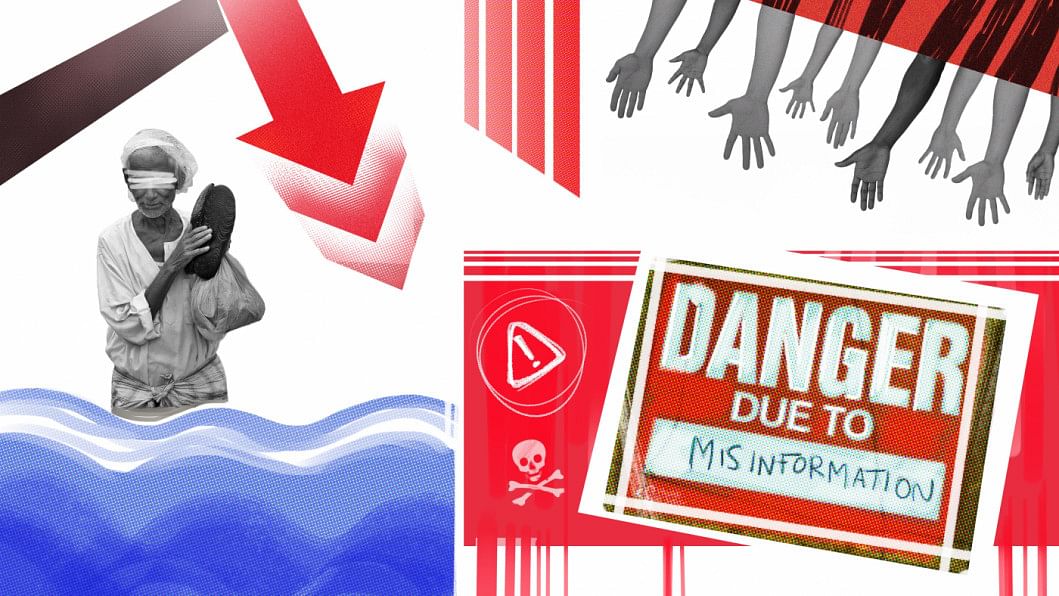
The World Economic Forum (WEF) just released its annual Global Risks Report 2024, ahead of its annual meeting in Davos, Switzerland. The report presents a sobering assessment of current and future socio-economic and political situations, signalling a global risk landscape that is gradually eroding human development progress. Against a backdrop of escalating global conflicts, intensifying climate adversities, and growing societal discontent, the WEF report portrays a negative outlook, anticipating global shocks in the coming years.
The report delves into the current global risk landscape by exploring economic, environmental, geopolitical, societal, and technological issues. Drawing on insights from the Global Risks Perception Survey, the report identifies significant risks in both the short and long terms. The survey, which was conducted among 1,490 risk experts (primarily from the business sector but also representing academia, government, and civil society), asked respondents about prominent risks in the areas of the economy, environment, politics, society, and technology.
Approximately 54 percent of respondents foresee instability and moderate risks, while another 27 percent anticipate increased turbulence. Only 16 percent respondents expect a stable outlook in the next two years. Looking further into the future, 63 percent have a turbulent outlook of the next decade, with fewer than 10 percent anticipating a calm situation. These responses underscore experts' widespread concern regarding global stability in the years to come.
The Global Risks Report comes at a time when the world is likely going to experience a lot of false or inaccurate information. In 2024, about half the world's population is expected to take part in elections in over 50 countries. The growing use of AI, especially tools like deepfakes, raises concerns about the spread of false information, posing a significant threat to the fairness of voter influence. False information during elections can seriously undermine the legitimacy of newly elected governments, leading to potential political unrest, violence, terrorism, and a gradual erosion of democratic processes in the long run.
The report looks at four structural forces shaping global risks, such as climate change, demographic divides, technological acceleration, and geostrategic shifts. As per the WEF report, the biggest risks for the world over the next two years are: misinformation and disinformation, extreme weather events, societal polarisation, cyber insecurity, interstate armed conflict, lack of economic opportunity, inflation, involuntary migration, economic downturn, and pollution.
As for the next 10 years, some of the risks identified (in order) are: extreme weather events, critical change to Earth systems, biodiversity loss and ecosystem collapse, natural resource shortages, misinformation and disinformation, and adverse outcomes of artificial intelligence (AI) technologies.
Specifically, the report cautions about a troubling future, marked by a rise in false, AI-generated information. It mentions that advanced technology and declining trust are making manipulated information more powerful. Misinformation and disinformation are significant global risks, exacerbated by user-friendly interfaces for powerful AI models. Hence, it has become challenging to filter out false content.
While new regulations are being introduced by governments for both content hosts and creators, the regulation of generative AI is still in its early stages. These efforts may support existing measures, but the response might not be able to keep up with the fast-paced development of this field.
The Global Risks Report comes at a time when the world is likely going to experience a lot of false or inaccurate information. In 2024, about half the world's population is expected to take part in elections in over 50 countries. The growing use of AI, especially tools like deepfakes, raises concerns about the spread of false information, posing a significant threat to the fairness of voter influence. False information during elections can seriously undermine the legitimacy of newly elected governments, leading to potential political unrest, violence, terrorism, and a gradual erosion of democratic processes in the long run.
Recent technological advancements, especially in AI, make it easier to create and spread fake information, particularly through social media. Misinformation and disinformation go beyond politics, shaping people's views of reality. False information harms how people see the world, creating problems for society and individuals' mental health. Clearly, the spread of false information can have far-reaching effects, influencing national elections and leading to protests or even violence.
When people strongly believe in different things, they are more likely to trust information that aligns with their beliefs, even if it is not objectively accurate. Plus, if people already lack trust in the government and media, questioning the truth of information can make societal divisions even worse. This not only impacts politics but also affects areas like health, justice, education, and the environment. Fake information can also lead to more fights, discrimination in workplaces, violent protests, hate crimes, and terrorism.
Governments and online platforms, in their efforts to safeguard free speech, face challenges in tackling false information and harmful content. Differing opinions on what the truth is lead to various groups harbouring conflicting views of reality. Influential individuals such as conspiracy theorists, politicians, extremists, social media personalities, or business leaders can exploit this discord to expand their influence.
False information and unreliable content might be used to make digital authoritarianism stronger. It is no secret that technology is often used to control people. As such, governments might decide what is true, giving political groups the power to control talks and silence people who disagree with them, such as journalists and critics. Sometimes, citizens even face punishment and political repression for not aligning their views with the unfounded narrative that is promoted.
The findings of the WEF's latest Global Risks Report are quite relevant to Bangladesh since many of the short-term and long-term issues have already been experienced or witnessed in the country. The prevalence of misinformation and disinformation as a challenge, for example, is already observed here. During the recent 12th national election, people were flooded with information on social media, and were often confused about the authenticity of that information. Consumers of this online content had no alternative sources to turn to. As a result, even many digitally literate people have fallen for false and inaccurate information. While this is a global challenge and the solution requires collective actions, a lot has to be done domestically, too. Though technology has now become a source of risk, it can also help us avoid the same risks. We need to invest more in traditional education and technological literacy in order to improve our awareness of how to differentiate between fake and authentic information.
Dr Fahmida Khatun is executive director at the Centre for Policy Dialogue (CPD), and non-resident senior fellow at the Atlantic Council.
Views expressed in this article are the author's own.
Follow The Daily Star Opinion on Facebook for the latest opinions, commentaries and analyses by experts and professionals. To contribute your article or letter to The Daily Star Opinion, see our guidelines for submission.

 For all latest news, follow The Daily Star's Google News channel.
For all latest news, follow The Daily Star's Google News channel. 

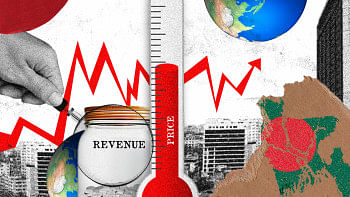



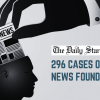

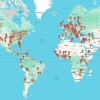
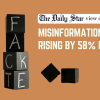


Comments